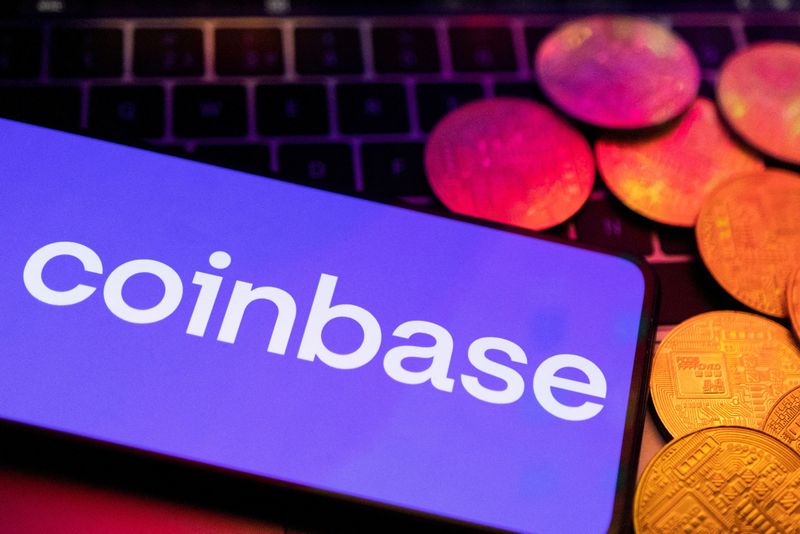By Jonathan Stempel
NEW YORK (Reuters) - Coinbase (NASDAQ:COIN), the largest U.S. cryptocurrency platform, said it will ask a judge to dismiss the U.S. Securities and Exchange Commission lawsuit claiming it broke the law by failing to register its business.
In a letter filed just before midnight on Wednesday in Manhattan federal court, Coinbase said the SEC has no authority to pursue civil claims because assets trading on its platform are not "investment contracts," and thus not securities.
"The SEC can pursue its claims only if the tokens and staking services it has identified are 'securities,'" Coinbase said. "They are not."
Spokespeople for the SEC did not immediately respond to requests for comment on Thursday.
The SEC sued Coinbase on June 6, saying it made billions of dollars acting as a middleman including by trading at least 13 crypto assets, or tokens, such as Solana, Cardano and Polygon that should have been registered as securities.
Coinbase was also sued over a "staking" program where it pools crypto assets to support activity on the blockchain network, in exchange for "rewards" it provides customers after taking commissions for itself.
The lawsuit was filed one day after the SEC sued Binance, the world's largest cryptocurrency exchange, accusing it of inflating trading volumes, mishandling customer funds and lying about its operations.
SEC Chair Gary Gensler has been trying to assert jurisdiction over the crypto industry, which he has said undermined investor trust in the U.S. capital markets.
In a separate 177-page filing denying the SEC's substantive claims, Coinbase said it "welcomes regulation," but that the regulator was arbitrarily and without Congress' permission trying to fill the "regulatory gap" over crypto assets.
"Agency enforcement authority is important but not boundless," it said. "The SEC's action here is beyond those bounds and unlawful."

Shares of Coinbase's parent Coinbase Global rose $1.58, or 2.2%, to $72.33 in afternoon trading on the Nasdaq.
The case is SEC v Coinbase Inc et al, U.S. District Court, Southern District of New York, No. 23-04738.